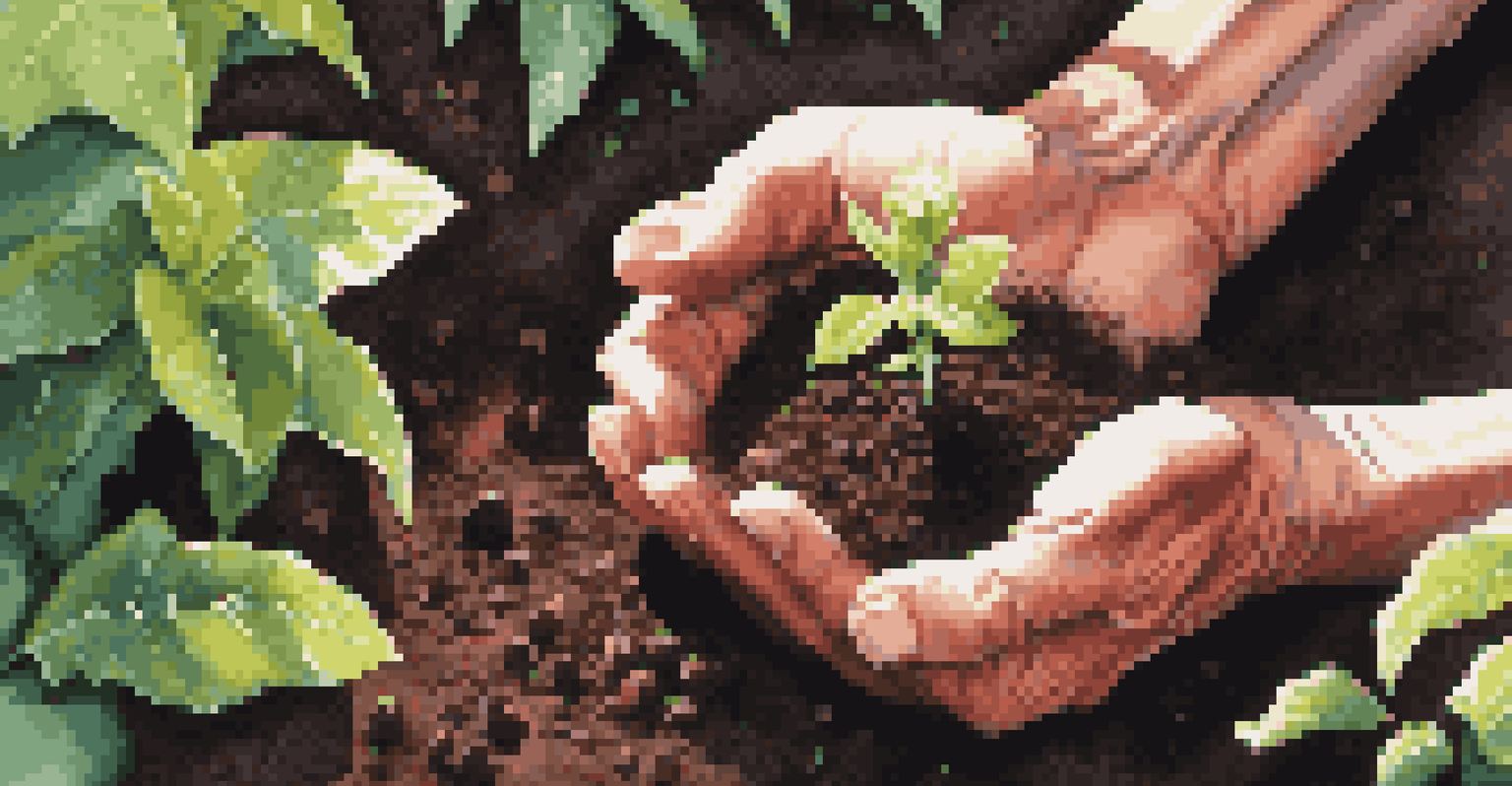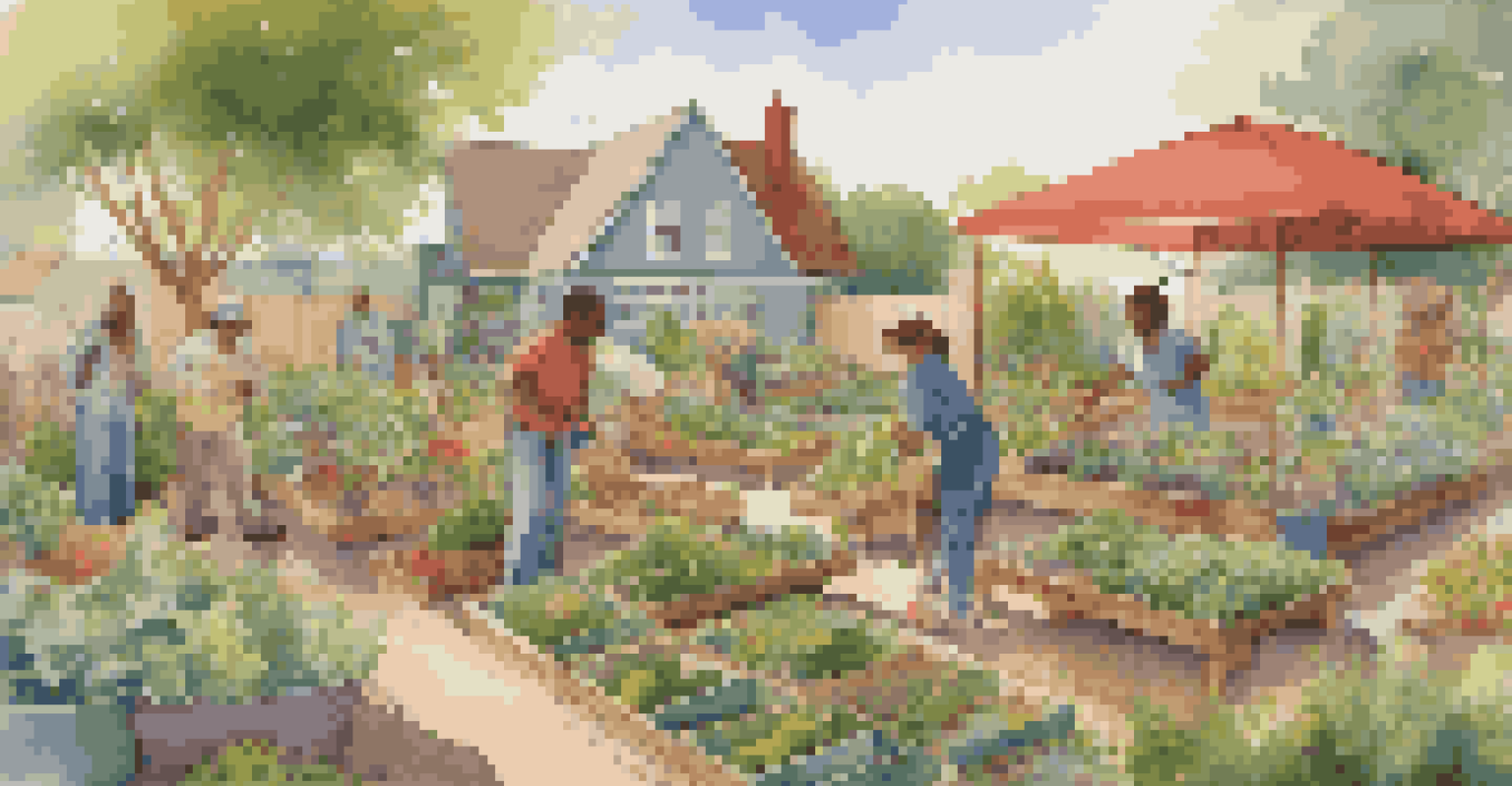The Therapeutic Benefits of Gardening for Mental Wellness

Understanding Mental Wellness and Its Importance
Mental wellness is more than just the absence of mental illness; it's about thriving in life. It encompasses emotional, psychological, and social well-being, affecting how we think, feel, and act. Just like physical health, mental wellness requires attention and care to flourish.
Gardening adds years to your life and life to your years.
In today's fast-paced world, many people struggle with stress, anxiety, and depression. Finding effective ways to manage these challenges is crucial for maintaining a balanced life. This is where gardening steps in, offering a natural and fulfilling outlet for emotional expression and healing.
Gardening encourages us to connect with nature, which can significantly boost our mood and overall mental health. Studies show that spending time outdoors and engaging with plants can reduce feelings of isolation and promote a sense of belonging, reinforcing the idea that our environment plays a key role in our emotional state.
The Physical Benefits of Gardening for Mental Health
Engaging in gardening is not only about planting seeds; it’s also a form of physical exercise. Digging, weeding, and watering plants can increase physical activity levels, which is closely linked to improved mental health. Exercise releases endorphins, the body's natural mood lifters, which can help alleviate symptoms of stress and anxiety.

Moreover, gardening allows us to soak up sunshine, which can be a natural source of Vitamin D. This nutrient is known for its role in mood regulation and can help combat feelings of sadness and depression. When we combine physical activity with exposure to sunlight, we create a powerful recipe for enhancing our mental wellness.
Gardening Boosts Mental Wellness
Engaging with plants and nature not only enhances emotional well-being but also provides a fulfilling outlet for stress relief.
Additionally, the satisfaction of watching plants grow and thrive can bring about a sense of accomplishment. This boost in self-esteem is invaluable, especially for those struggling with feelings of inadequacy or low self-worth. Every bloom or harvest becomes a reminder that we can nurture and grow, both in the garden and in our lives.
Mindfulness and Stress Relief Through Gardening
Gardening is a wonderful way to practice mindfulness, which is the art of being present in the moment. When we immerse ourselves in gardening, we focus on the sights, sounds, and smells of nature, allowing worries and distractions to fade away. This mindfulness practice can lead to a calmer mind and reduced anxiety levels.
To plant a garden is to believe in tomorrow.
As we dig our hands into the soil and care for our plants, we engage in a form of meditation. This connection to the earth encourages us to slow down and appreciate the beauty around us. By nurturing our plants, we also nurture ourselves, creating a tranquil space for reflection and peace.
In essence, gardening serves as a therapeutic escape from daily stresses. The rhythmic nature of planting, watering, and pruning can be incredibly soothing, enabling us to disconnect from our busy lives and recharge our mental batteries. It's a simple yet effective way to create a sanctuary of calm amidst the chaos.
The Social Connections Fostered by Gardening
Gardening can also be a social activity, offering opportunities to build connections with others. Community gardens, for example, bring people together to share knowledge, resources, and experiences. These interactions not only foster friendships but also create a sense of belonging, which is essential for mental well-being.
Participating in gardening clubs or local gardening events allows individuals to meet like-minded people who share a passion for plants. This community support can help combat feelings of loneliness and isolation, providing a network of encouragement and camaraderie. Gardening together can also be a great way to engage in meaningful conversations.
Physical Activity Enhances Mood
Gardening serves as a form of exercise that releases endorphins, improving mental health through physical movement and sunlight exposure.
Moreover, sharing the fruits of one’s labor can create a sense of accomplishment and joy. Whether it’s giving away homegrown vegetables or flowers, this act of generosity enhances our social interactions and reinforces positive feelings, making gardening a win-win for both the gardener and the community.
Gardening as a Creative Outlet for Self-Expression
At its core, gardening is an art form that allows for creativity and self-expression. From choosing the types of plants to designing the layout of a garden, every decision reflects the gardener's personality and preferences. This creative process can be incredibly liberating and fulfilling, providing an escape from the mundane routines of everyday life.
Experimenting with colors, textures, and arrangements in the garden can stimulate our imagination and encourage us to think outside the box. Such creative endeavors not only enhance our outdoor spaces but also boost our mood and self-esteem. The joy of creating something beautiful can have profound effects on our mental state.
Additionally, gardening allows for personal storytelling through the selection of plants and garden themes. Whether it's a butterfly garden or a vegetable patch, each garden can tell a unique story about the gardener's values and experiences. This personal connection further enriches the therapeutic benefits of gardening.
The Therapeutic Effects of Caring for Plants
Caring for plants can be a therapeutic experience that cultivates patience and responsibility. Watching over a plant’s growth teaches us about nurturing and the rewards of dedication. These lessons can translate into our daily lives, helping us manage stress and develop healthier coping strategies.
For many, tending to plants becomes a form of routine that fosters stability and predictability. Routines can be comforting, especially during times of uncertainty. The act of watering, pruning, and observing plants can provide a sense of control and normalcy in our lives.
Community Connections Through Gardening
Participating in gardening fosters social connections, creating a sense of belonging and combating feelings of loneliness.
Moreover, the simple act of nurturing another living thing can enhance our empathy and compassion. This connection to nature encourages us to be more mindful of our own well-being and the well-being of those around us. By caring for plants, we learn to care for ourselves.
Creating Your Own Healing Garden for Mental Wellness
Starting your own healing garden can be a rewarding journey toward improved mental wellness. It doesn't require a large space; even a small balcony or window sill can serve as your green sanctuary. Begin by selecting plants that resonate with you, whether they are colorful flowers or fragrant herbs, to make the space uniquely yours.
As you create your garden, consider incorporating elements that promote relaxation, such as comfortable seating or decorative stones. These features can enhance the tranquility of your garden, making it a perfect retreat for mindfulness and reflection. Remember, the garden is a reflection of your inner self, so let it inspire peace and joy.

Finally, embrace the process of gardening as a journey rather than a destination. Celebrate small victories, like the first sprout or bloom, and don’t be discouraged by setbacks. Gardening is about growth—both in the garden and in our own lives—and with time, you’ll find that the therapeutic benefits will blossom in unexpected ways.